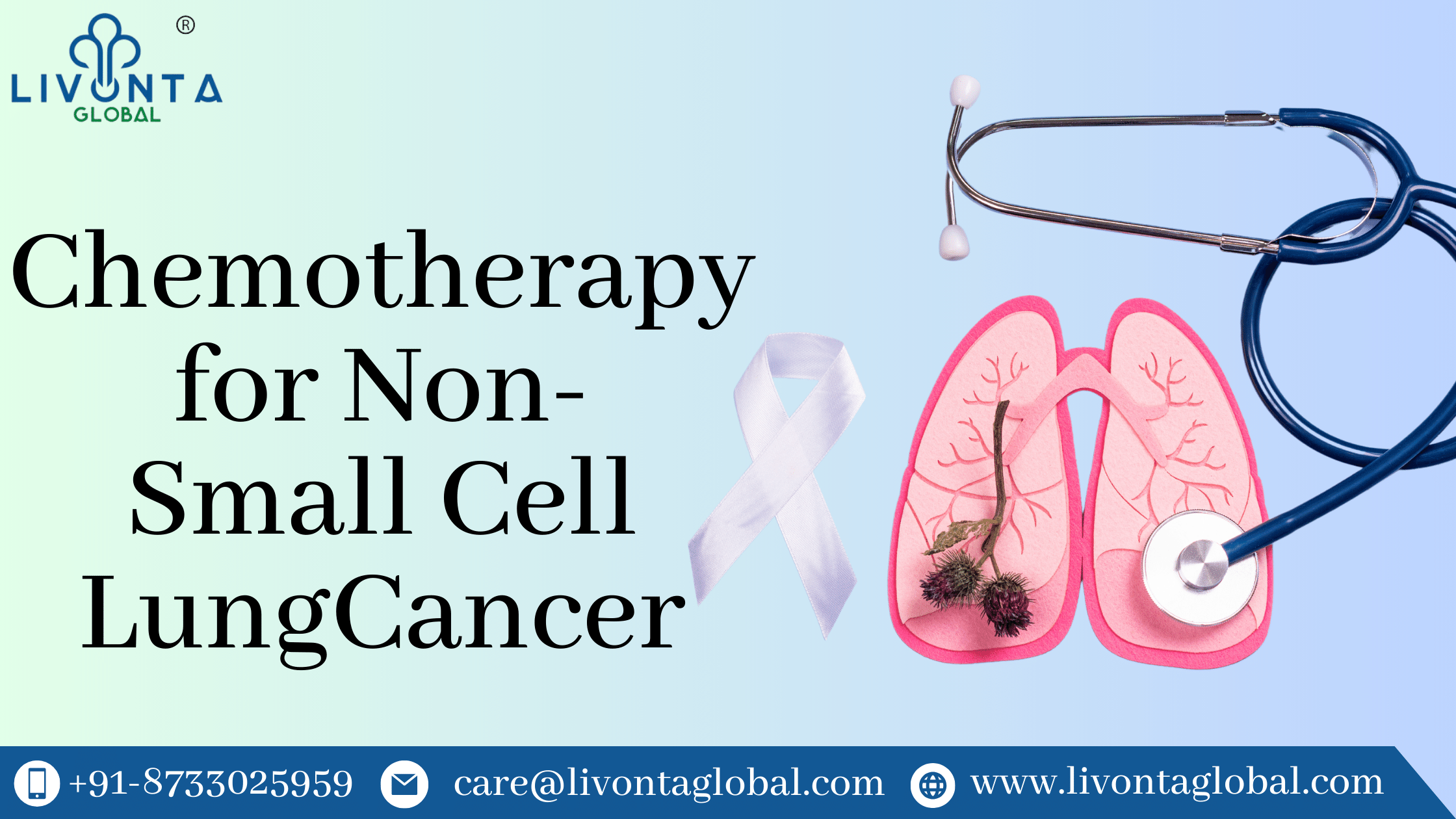
Chemotherapy for Non-Small Cell Lung Cancer
Chemotherapy is a form of cancer treatment that involves administering anti-cancer medications orally or intravenously. The majority of the body’s organs are reached by these medications as they circulate in the blood.
Chemotherapy is applied when?
Not all persons with non-small cell lung cancer (NSCLC) will require chemotherapy, however, chemo may be suggested in several circumstances depending on the tumor’s stage and other factors. The doctors of the best cancer treatment India will suggest the necessary details of the treatment type.
Neoadjuvant chemotherapy is performed before surgery to try to reduce a tumor’s size so that it can be removed with less invasive surgery (often in conjunction with radiation therapy). Adjuvant chemotherapy is used after surgery to try to destroy any cancer cells that could have been left behind or that have spread but can’t be detected even on imaging tests. It is sometimes combined with radiation therapy.
In some cases, chemotherapy and radiation therapy are used as the major treatments for locally advanced NSCLC when the cancer has spread to surrounding structures, making surgery impossible, or when the patient’s health precludes surgery.
Chemotherapy drugs used to treat NSCLC
Early-stage lung cancer is frequently treated with two chemotherapy medication combinations. If a combination is utilized, it frequently consists of one other medication and either cisplatin or carboplatin. Other combinations, including gemcitabine with vinorelbine or paclitaxel, may also be utilized from time to time.
However, advanced lung cancer may be treated with a single chemotherapy agent, particularly for those who would not handle combination chemotherapy well, such as those who are elderly or in poor general health. A targeted therapy medicine or an immunotherapy drug may be administered in addition to chemotherapy for some patients with advanced lung cancer.
How is chemotherapy given?
Lung cancer chemotherapy is normally administered intravenously (IV), either as an injection over a short period of time or as an infusion over a longer period. This can be carried out in a hospital setting, a chemotherapy clinic, or a doctor’s office. To give chemo, a slightly larger and more durable IV is frequently needed in the venous system. They are also referred to as central lines, central venous catheters, or central venous access devices (CVADs). They are employed to directly inject medications, blood components, nutrients, or fluids into your blood. They can also be utilized to extract blood for analysis.
CVCs come in a wide variety of varieties
Chemotherapy is administered by doctors in cycles, with a break between each cycle to allow you to recuperate from the side effects of the medications. Most frequently, cycles last 3 or 4 weeks. Depending on the medications used, the schedule changes.
Depending on the medications employed, adjuvant and neoadjuvant chemotherapy is frequently administered for 3 to 4 months. The effectiveness of the medication and any negative effects you experience will determine how long you need to get it.
The initial chemotherapy regimen for advanced malignancies is frequently administered for 4 to 6 rounds. However, when going for cancer treatment, the patient has to be aware of the possible side effects which includes –
- Hair loss
- Loss of appetite or weight changes
- Nausea
- Vomiting
- Mouth sores
- Diarrhea or constipation
Some medications may have certain negative effects. Drugs like cisplatin, vinorelbine, docetaxel, or paclitaxel, for instance, might harm nerves (create peripheral neuropathy). This might occasionally cause symptoms including discomfort, burning or tingling sensations, sensitivity to cold, or weakness, usually in the hands and feet. When treatment is stopped, in the majority of cases, this fades away or improves, but in some people it may persist for a very long period.
Make sure to let your medical team of cancer treatment in india know about any adverse effects you have throughout chemotherapy so they can be treated right away. To stop the side effects from getting worse in some situations, the doses of the chemotherapy medications may need to be decreased, or the course of treatment may need to be postponed or discontinued.
Lung Cancer Treatment
